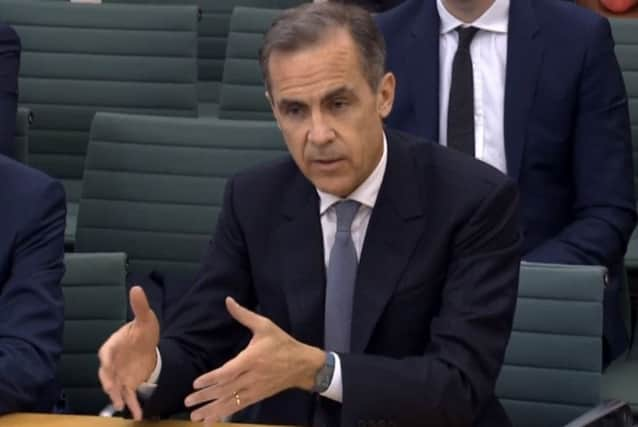BoE chief '˜treating EU poll like every other political event'


Mr Carney told MPs in a hearing with the Treasury Select Committee that the Bank was treating the June vote as it would “every other political event”.
The central bank boss batted away questions over the impact of the referendum on the pound after sterling fell on Monday to its lowest level against the dollar since spring 2009 in the wake of London Mayor Boris Johnson’s decision to join the campaign to leave the EU.
Advertisement
Hide AdAdvertisement
Hide AdHe is set to give more details in a hearing on March 8 on the referendum and Prime Minister David Cameron’s EU deal, but told MPs there has been a sharp increase in demand for protection against falls in the pound.
Mr Carney said this was running at levels seen around the height of the Scottish referendum.
Fellow rate-setters at the Bank confirmed that a sustained hit to the pound caused by Brexit uncertainty could have an impact on the timing of any interest rate hike.
On the one hand, the weakness of the pound would push up inflation as imports become more expensive, which could bring forward the prospect of a rate rise.
Advertisement
Hide AdAdvertisement
Hide AdBut Brexit fears could also lead to weakness in other areas of the economy, which may push any hike even further away.
Many economists have pegged back their expectations for the first interest rate hike due to the impending referendum.
The Bank has kept its key rate on hold at 0.5% for almost seven years and financial markets now are not pricing in a rise until 2019 amid a slowdown in the world economy.
Dr Gertjan Vlieghe, a member of the Bank’s Monetary Policy Committee, warned that a weaker pound and the possibility of a Brexit could hit growth.
Advertisement
Hide AdAdvertisement
Hide AdHe told MPs: “It is possible at some point that increased uncertainty from foreign exchange investors also ends up manifesting itself in increased uncertainty by households and businesses which may, or may not, delay or reduce their spending.
“So far we haven’t seen very clear evidence of that, but we are watching very carefully.”